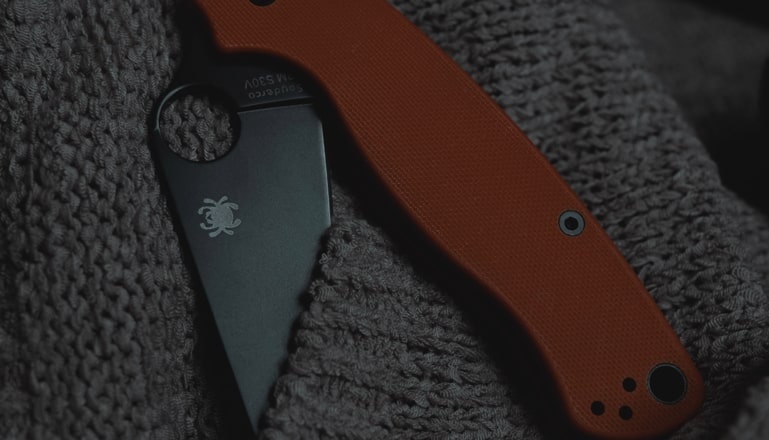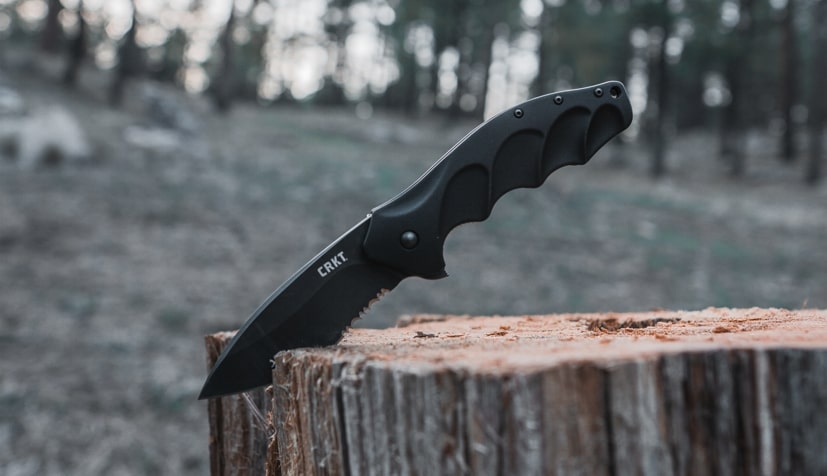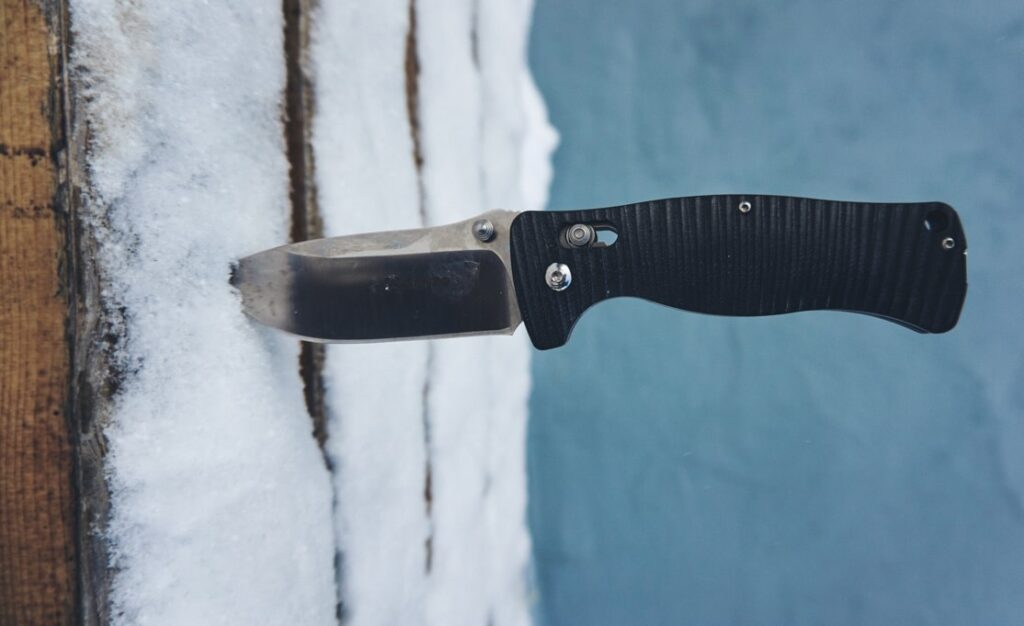Mailing knives isn’t as straightforward as tossing them in a box and sending them off.
Depending on the knife type, destination, and carrier, you could be dealing with strict rules, or worse, risk having your package delayed, returned, or confiscated.
And if you’re a knife seller, that’s more than just a headache, it’s lost trust and lost revenue.
In this guide, we’ll break down everything you need to know about how to mail knives safely and legally.
Can you mail a knife?

Yes, you can mail a knife, but it depends on the type of knife and the carrier you use.
In the U.S., it’s perfectly legal to ship most common knives like kitchen knives, pocket knives, and folding blades through major carriers like USPS, UPS, and FedEx.
But when it comes to automatic knives, switchblades, or knives with spring-assisted opening mechanisms, things get complicated fast.
Let’s break it down:
- USPS has the strictest rules. You can’t mail switchblades or automatic knives through USPS unless you’re active-duty military or law enforcement. Regular kitchen and pocket knives? No problem.
- UPS and FedEx are more flexible, especially for ground shipments. But they still expect compliance with federal and state laws, which vary depending on the destination.
Also important: mailing laws differ from carrying laws. Just because a knife is legal to ship doesn’t mean it’s legal for the buyer to carry it in public.
As a seller, you’re responsible for checking the rules on both ends, or clearly disclaiming that responsibility.
TLDR: You can ship a knife. But know your knife, know your buyer’s location, and always check your carrier’s current policy.
What types of knives can you mail?
Not all knives are treated equally when it comes to shipping. Some are totally fine to mail; others come with restrictions—especially if you’re using USPS.
Here’s a quick breakdown:
Kitchen knives
These are the easiest to ship. Chefs, home cooks, and retailers send kitchen knives all the time. No special restrictions apply, just make sure they’re packaged safely (we’ll get to that).
Pocket knives & folding knives
Legal and easy to ship in most states. These include everyday carry (EDC) folders, multitools, and Swiss Army knives. USPS, UPS, and FedEx all allow them.
Fixed-blade hunting or survival knives
Still mailable, but depending on the blade length or features (e.g., double-edged or combat-style), you might run into legal limits in certain states like California or New York.
Switchblades & automatic knives
Here’s where it gets tricky:
- USPS prohibits mailing switchblades unless you’re military or law enforcement.
- UPS and FedEx may allow them, but you’re responsible for following local laws.
- Some states completely ban possession of these knives.
Butterfly knives (Balisongs)
Allowed by some carriers, but again, they’re restricted or banned in several U.S. states. Best to check the buyer’s local laws before shipping.
Utility, craft, and chef’s tools
Knives like box cutters, sculpting tools, or cleavers are generally fine to ship as long as they’re clearly labeled for kitchen or work use.
Start Working with a Professional Now
How to mail a knife (step by step)
Mailing a knife safely isn’t just about compliance, it’s about protecting both your blade and the people handling it. Here’s a step-by-step guide that covers protection, packaging, and posting.
Step 1: Clean and oil the knife
Before anything else, make sure the knife is clean and protected from moisture.
- Wipe the blade clean.
- Apply mineral oil or wax to prevent rust.
- If the knife has a wooden handle, oil or wax that too.
- Optional: Use VCI paper or felt-lined blade guards for added rust protection.
Step 2: Protect the edge
The knife tip and edge are especially vulnerable.
- Use a plastic blade guard, cardboard saya, or wrap the blade in thick cardboard.
- Tape the guard or saya in place: Make sure to tape near the heel and tip to prevent movement.
- Place extra cardboard on the sides to prevent shifting.
Step 3: Wrap it up securely
Water and impact protection are your next priorities.
- First layer: cling film or plastic wrap to seal against moisture.
- Second layer: bubble wrap or soft padding to protect against shocks.
- Secure everything using masking tape (blue tape is popular for visibility and easy removal).
Step 4: Choose the right box (or tube)
Box choice makes or breaks your shipment.
- For long, slim knives, cardboard tubes are ideal, they resist bending under heavy load.
- If no tube is available, roll the knife in several layers of cardboard and place it inside a sturdy box.
- Reinforce the structure if needed (some users add thin wood planks inside to prevent bending).
Step 5: Stabilize the knife Inside
Prevent the knife from moving, and from absorbing outside pressure.
- Use folded cardboard, crumpled paper, or foam at both ends and sides.
- The goal is zero wiggle room, the knife should feel like it’s “floating” in padding.
Step 6: Tape the box generously
When in doubt, tape more than you think is necessary.
- Wrap tape tightly around all seams.
- If using a cardboard tube, seal both ends securely.
- Add a small “cut here” line if the package is unusually taped up.
Step 7: Apply the shipping label
Proper label placement avoids delays or scanning errors.
- Tubes: Place barcode lengthwise (not around) and keep it on top.
- Boxes: Place label on the most stable side, not over seams or bends.
Bonus Tip: Know what happens during shipping
Knife parcels endure a lot:
- Stacked under heavy packages in cages.
- Thrown or slid down chutes at sorting centers.
- Exposed to moisture if left outside or stuck in customs.
That’s why good internal packing matters even more than worrying about the delivery driver tossing the parcel.
Tips to prevent damage while shipping knives

When you’re shipping knives, especially expensive or custom ones, damage is the last thing you want.
A bent tip, cracked handle, or scratched blade can turn a sale into a refund fast. Here’s how to avoid that:
1. Don’t ship a loose knife in a box
It seems obvious, but it still happens. Never just drop a knife (even sheathed) into a box without securing it. Movement inside the package is the biggest cause of damage.
Expert Tip: Secure the knife inside a blade guard, saya, or tightly wrapped cardboard. Also use zip ties or rubber bands if needed to keep it from shifting.
2. Double up on padding
Wrap the knife in two layers of bubble wrap, then place it in a tight-fitting cardboard sleeve, before boxing it. That’s smart, especially for chef’s knives or collectibles.
- Bubble wrap + cardboard = ideal combo
- Use packing paper or foam to fill dead space in the box.
3. Use the “box-in-a-box” trick
This one’s from knife collectors: Place your wrapped knife in a small inner box, then place that inside a larger box filled with cushioning. It adds weight but cuts movement drastically.
Especially useful for international shipping or high-value items.
4. Don’t over-tape
It might feel secure, but excessive tape makes packages a nightmare to open. Use enough to seal, not to mummify.
For protection: focus on internal padding, not external tape.
5. Add a “sharp object” label discreetly
Some sellers include a small note inside the package that says “Sharp Object Enclosed.” Not required by USPS, but a polite warning for handlers and the recipient.
Best practices for manufacturers and dealers
If you’re shipping knives regularly, not just as a hobbyist, but as a business, then streamlining your packaging, labeling, and compliance processes is essential.
Here’s how to do it right:
- Packaging matters more than you think: Good packaging is your first line of defense against damage, and your first impression on the buyer. Use custom-fit inserts, secure blade sheaths, and double-wall boxes when needed. Especially for premium knives, overpackaging beats a refund request.
- Be smart with labeling: Avoid terms like “weapon” unless legally required. Instead, opt for neutral descriptions like “kitchen cutlery” or “folding knife.” For international shipping, include detailed customs declarations (blade length, material, usage) to avoid delays.
- Streamline your shipping process: Create SOPs for packing and labeling, use automation for invoices and tracking, and train staff on compliance checks. The more consistent your process, the fewer errors and customer complaints.
- Stay updated on knife laws: Local and international laws change frequently. Stay in the loop via trade newsletters or logistics partners, and always double-check restricted destinations before sending out batches.
Can you ship a knife internationally

Yes, but it’s not always straightforward.
International knife shipping depends on two things: what type of knife you’re sending and where it’s going.
Some countries (like the UK, Australia, or Germany) have strict laws against importing certain blade types, especially automatics, balisongs, or anything that can be classified as a “fighting knife.”
On the other hand, most kitchen knives or folding pocket knives are generally safe to ship to places like Canada, most of Europe, or Japan, if you follow the rules.
Here’s what to watch out for:
- Customs declarations: Be honest and specific. Mention the material (e.g. stainless steel kitchen knife), blade length, and intended use.
- Carrier policies: DHL, FedEx, and UPS all allow international knife shipping, but each has specific terms for “weapons” or “tools.” USPS, for example, prohibits international shipping of switchblades entirely.
- Packaging: Protect the blade and prevent shifting inside the box. A damaged knife or torn packaging increases your chances of customs rejection.
- Local laws: Always double-check both the origin and destination country’s import/export laws. What’s legal to export in the US might be banned upon arrival.
If you’re shipping knives in bulk or want to scale internationally, consider partnering with a 3PL experienced in shipping bladed items. It’ll save you from delays, seizures, or worse, angry customers stuck in customs limbo.
Final thoughts
Shipping knives safely is all about knowing the rules and packing smart.
From switchblades to chef’s knives, different categories come with different restrictions, and understanding those can save you time, money, and hassle.
If you’re a knife brand or retailer, streamlining your shipping process starts with choosing the right manufacturing partner.
A reliable supplier ensures better fit, finish, and packaging, making every shipment smoother.
Kegani offers high-quality OEM and ODM knife manufacturing with flexible wholesale solutions.
Whether you’re building your own product line or scaling an existing one, we’re here to help you design, customize, and manufacture blades that meet global standards. Contact us to get started.
FAQs
Can you mail a kitchen knife from Japan to the US?
Yes, you can, as long as the knife is not a prohibited type (like switchblades) and it’s properly packaged.
Commercial shipments should be declared accurately on customs forms and comply with both Japanese export laws and US import rules.
Can you mail a Swiss Army knife?
Yes. Pocket knives like Swiss Army knives are generally mailable via USPS and other carriers. Just make sure they’re safely packaged to prevent injury or damage.
What are the USPS rules on mailing knives?
USPS allows most knives to be mailed, but restricts switchblades, ballistic knives, and other “automatic opening” knives.
Packaging must prevent accidental injury, and contents should not violate state or federal laws.
Do I need to declare a knife when shipping?
For domestic shipping, you don’t need to declare a knife unless using a courier service that requires it.
For international shipping, you must declare the item on customs forms, especially if you’re selling or exporting goods.
Is it legal to ship a knife to California / New York?
Yes, but be careful. Both states have strict laws on certain knife types (like gravity knives or automatic knives). Avoid shipping restricted models and always check updated state regulations.
What if the package gets lost or damaged?
Use tracking and insurance whenever possible. For valuable or custom knives, consider signature confirmation.
If the knife was packaged properly and labeled correctly, you’ll have better chances of compensation or resolution from the carrier.

